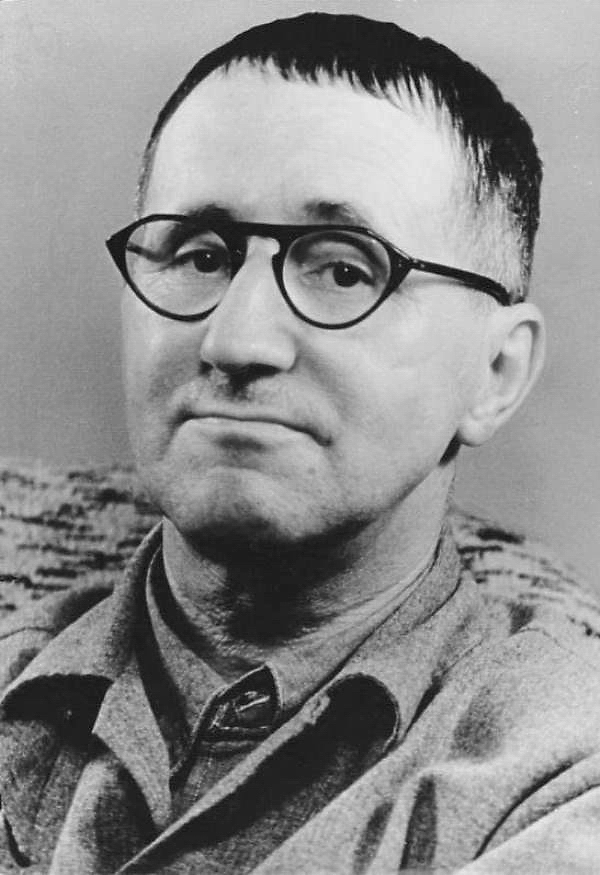Born in 1898 and dying in 1956, he lived most of his life in Germany before fleeing to the USA when Hitler became chancellor due to his communist beliefs. He worked, during The Great War, as a medical orderly, helping in military hospitals and witnessing the horrific injuries and the death caused by it. This then encouraged him to become a life long pacifist and influenced much of his works.
Brecht created the idea of the Verfermdungseffekt, also known as the V effect, distancing or defamiliarisation. This is the idea that the audience must not forget they are watching a play and therefore not becoming attached to characters by swapping the actors in and out of scenes to make a point, meaning that they can then focus on the message of the play. He would encourage the actors on stage to wear placards and announce their stage directions to remind audiences that they were watching a play. Brecht also felt as though audiences should focus on the reason why events in the play happened instead of the final result, often telling an audience what happens at the end so they can do so.
A quote explaining another idea of the effect is:
The artist never acts as if there were a fourth wall besides the three surrounding him. He expresses his awareness of being watched. The audience can no longer have the illusion of being the unseen spectator at an event which is really taking place. - Willet
He also thought that, unlike Stanislavski, characters should be created from the outside-in, therefore looking at their physicality and seeing how that represents certain characters. In class we looked at this when Simon told us to pretend there was a piece of string pulling out our noses and bottoms. Observing Euan with his bottom out, it gave him a bent over, hunched look which we said made him look as though maybe throughout his life he worked in manual labour, maybe something that required heavy lifting. From the simple change, we had quickly come up with a reason and part of the character's story, showing what Brecht had wanted, developing character through physical movement and appearance instead of extensive research and our own experiences like Stanislavsky.
We then looked our own opinions of what we wanted to change in the world, with Will sparking off the debate that our generation was too apathetic to actually change anything. This was done to encourage our own political views and to get us to start thinking about means of protesting that would be affective to get those views across.
I personally agreed with the statement due to our overwhelming use of technology that distracts us and our want to keep the comfortable live that we lead without any risk of danger. I thought that technology has become a distraction for us so we can avoid and ignore these big problems because that it the simplest option.
We had the idea that you could hold a protest by becoming a physical barrier for others (us partaking in something apathetic) to express how this apathy is hindering them from their lives and actually doing something worth while. I thought this was an effective idea because by actually making people get annoyed of your hindrance the would actually begin to notice our cause. This seemed to be affective when we trialled it in the reception as lots of people started to get annoyed before realising it was a protest and asking what it was about.

No comments:
Post a Comment